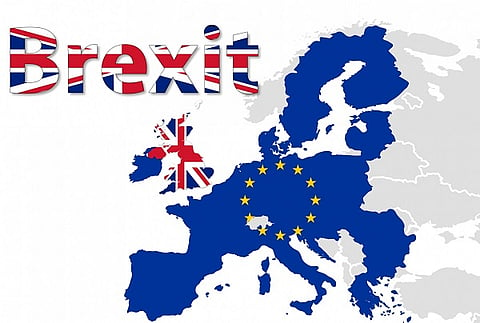

Like the rest of the world, India is on wait-and-watch mode this week as Great Britain votes on a historic referendum on whether it should leave the European Union. The question is a simple straight-forward ‘Yes’ or ‘No’. Should the Great Britain leave the European Union?
If Britain does vote ‘Leave’ on Thursday, it could have a significant impact on both the Indian economy and for Indians aspiring to migrate to Britain.
What it means for the economy?
There are over 800 Indian-owned businesses based in the UK. As per a UK government release, Indian companies invest more in the UK than in the rest of the EU countries combined. With a common language and similarities in the legal system thanks to India’s colonial past, the ease of doing business in UK means it is an ideal springboard for companies looking to expand in Europe. Even PM Narendra Modi is in favour of Britain remaining within the EU calling the country “India’s gateway to Europe” in his recent visit.
Economic experts agree that a potential Brexit will lead to a period of economic insecurity. “Historically, India has had close economic and political ties with Britain. Indian companies have invested in Britain and vice versa. A Brexit will lead to a time of insecurity among Indian investors,” opines Britta Petersen, Senior Fellow ORF (and former South Asia Correspondent Financial Times Deutschland).
If Great Britain votes to leave the EU, companies may need to find a different European city as their entry point into Europe. For instance, at present Tata can freely sell cars assembled in the UK across the rest of the countries in EU without tariffs. Following a Brexit, Tata may have to shift their assembly plant to another European city to cut costs. Jaguar, for instance, is manufactured in the UK and is sold in 40 other European countries.
Will Indians migrating to the UK be affected?
Net migration into the UK is at an all-time high 330,000 (as per 2015 figures) with EU nationals accounting for a sizeable 184,000. Currently, immigrants from EU countries are free to work in the UK while immigrants from non-EU countries are selected based on a points-based system. If Britain votes to leave the EU, it could lead to a more equal selection process as the Brexit campaign has announced that the points-based system will apply to immigrants from EU countries as well.
However, a Brexit will not necessarily help Indians obtain visas in Britain. The Brexit government’s tough stance on immigration will likely curb overall immigration into the country. Indians applying for a work visa in the UK are selected based on a points-based system that was tightened in the last few years to control immigration. There was already a fall in the number of Indian students studying in British universities from 22,385 in 2012-13 to 18,320 in 2014-15 due to visa restrictions.
It is also unlikely that Britain will evict migrants and replace the large number of EU-nationals currently part of the workforce in the country. “There is a lot of crystal-ball gazing involved as it is not clear how things will play out. While on paper, immigrants will be illegal post-Brexit, they could still apply for a work visa,” added Ms. Petersen.
The debate about Britain’s future with the EU is entering its final stages this week. With just two days to go for the crucial referendum, the result of the vote is still unclear.